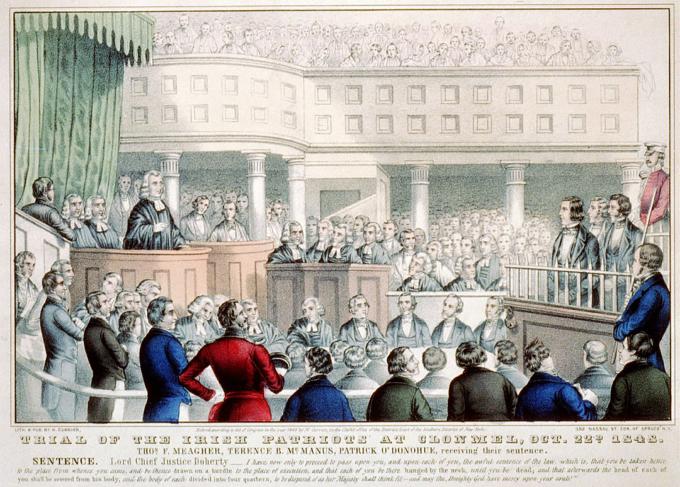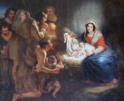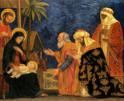
Culture

In the aftermath of the rebellion, he and other Young Irelanders were sentenced to a 14,000-mile trip to the prison of Australia.
What happens when an Irish rebel meets a bishop? The bishop is not impressed. At least, that was the case on Aug. 2, 1853, when Bishop John Bernard Fitzpatrick met Patrick O'Donoghue. As with everything, the meeting had its seeds in a failed potato crop.
Boston would be unrecognizable today were it not for blight in the potato crop. The infection caused death and starvation through the poorest parts of the region. The Great Famine lasted from 1845 to 1852, during which approximately 25 percent of Ireland's population disappeared due to death or emigration. With 90 percent of Catholics living in poverty, the blight directly led to massive emigration of Catholics to the New World.
Bishop John Hughes of New York offered a different opinion during a lecture in 1847. He said, "the newspapers tell us, that this calamity has been produced by the failure of the potato crop; but this ought not to be a sufficient cause consequence: the potato is but one species of the endless varieties of food which the Almighty has provided for the sustenance of his creatures; and why is it, that the life or death of the great bode of any nation should be so little regarded as to be left dependent on the capricious growth of a single root?"
It is true that there were numerous other crops in Ireland, but the economic conditions brought on by Great Britain, not to mention an ambivalence toward Catholics, spelled doom. Thousands died, even more fled, and political unrest ensued.
In July of 1848, a group of men known as the Young Irelanders attempted to force political change in Ballingarry, County Tipperary. The political group led by William Smith O'Brien was unhappy with the local politicians and parliament as a whole. Riding a wave of nonviolent revolutions around the world, the group believed a small revolt could lead to vast political change. After days of waving a flag for revolt across Ireland, the group got into a bloody and lengthy shootout with the police. Some rebels managed to escape. O'Donoghue was not one of them. In the aftermath of the rebellion, he and other Young Irelanders were sentenced to a 14,000-mile trip to the prison of Australia.
From Tasmania, O'Donoghue began publishing The Irish Exile, featuring poetry, history, and columns on the political situation in Ireland. Excerpts of the paper were published internationally, bringing him further notoriety. The publishing of the paper was controversial and led to O'Donoghue being sentenced to a year of hard labor, typically reserved for harder criminals. Once the year passed, he started publishing about his experience. He was quickly sentenced to yet another year on a chain gang, which weakened his health.
Through the help of fellow prisoners and Irish sympathizers, O'Donoghue was smuggled on a boat and managed to escape the continent. A description of his escape would be published in The Boston Pilot on Aug. 6, 1853, and it shows just how perilous his situation was. O'Donohoe ended up trapped in the engine room: he "was thus ensconced in a compartment about seven feet in length, three in width, and two in height; and by its formation I was obliged to lie in a recumbent posture . . . When the furnaces came to blaze in full strength, the heat and want of air made the den very insupportable. I dreaded instant death by suffocation or apoplexy."
From Australia to California, O'Donoghue then made his way to Boston where he asked to meet with Bishop Fitzpatrick. On Aug. 5, 1853, the Bishop misspelled his name in his journal entry: "Patrick O'Donahue known as one of the Irish patriots of 1848, recently escaped from Australia whither he had been sent by the English government as a convict under sentence of treason and rebellion, calls to see the Bishop."
The bishop was not altogether impressed with the Irish rebel, who was physically the worse for wear after the escape and years on a chain gang, but the Bishop chalked it up to something else: "He is not himself exactly being evidently in a state of high excitement caused partly by fatigue, by travelling and partly by liquor."
The journal entry only got more scathing from there: "So far as one can judge him in his present condition, he seems to be a man of hot impulses, honest purpose, sound Catholic faith and small brains, in no respect fitted to be the counselor or leader of a people."
There was a reception at Faneuil Hall the next day to celebrate some Irish revolutionaries. The bishop attended the events: "A dinner is five at Faneuil Hall to the 'Irish Patriots' Thomas Gallagher and Patrick Donahue." From what the bishop describes, Gallagher was the primary speaker at the event: "The former has been in this country for a year or more and is a liberal catholic." In Gallagher's speech, he "denounces the clergy of Ireland as the cause of the failure of what is called the Irish Revolution of 48."
Bishop Fitzpatrick was not impressed by the reception just as he was not impressed by O'Donoghue: "about 400 persons assembled from Boston, New York, and many other places attend the dinner. It ends as a disgraceful and ludicrous scene of angry disputes and some drunkenness."
O'Donoghue would sadly not enjoy freedom for long. He died about six months later on Jan. 22, 1854, in New York City. The contemporary belief is the years on the chain gang led to a rapid deterioration in his health. His fellow escapees and Irish revolutionaries did not attend, but local Young Irelanders in New York were there to pay their respects.
Matthew Radulski is an archivist for the Archdiocese of Boston.
Recent articles in the Culture & Events section
-
Happy New Year!Eileen McLaughlin
-
Joyful hopeMichael Reardon
-
Scripture Reflection for Jan. 5, 2025, The Epiphany of the LordDeacon Greg Kandra
-
Tolkien's world, still popular on the big screen, began with faith and wordsCecilia Hadley
-
Scripture Reflection for Dec. 22, 2024, Fourth Sunday of AdventDeacon Greg Kandra























